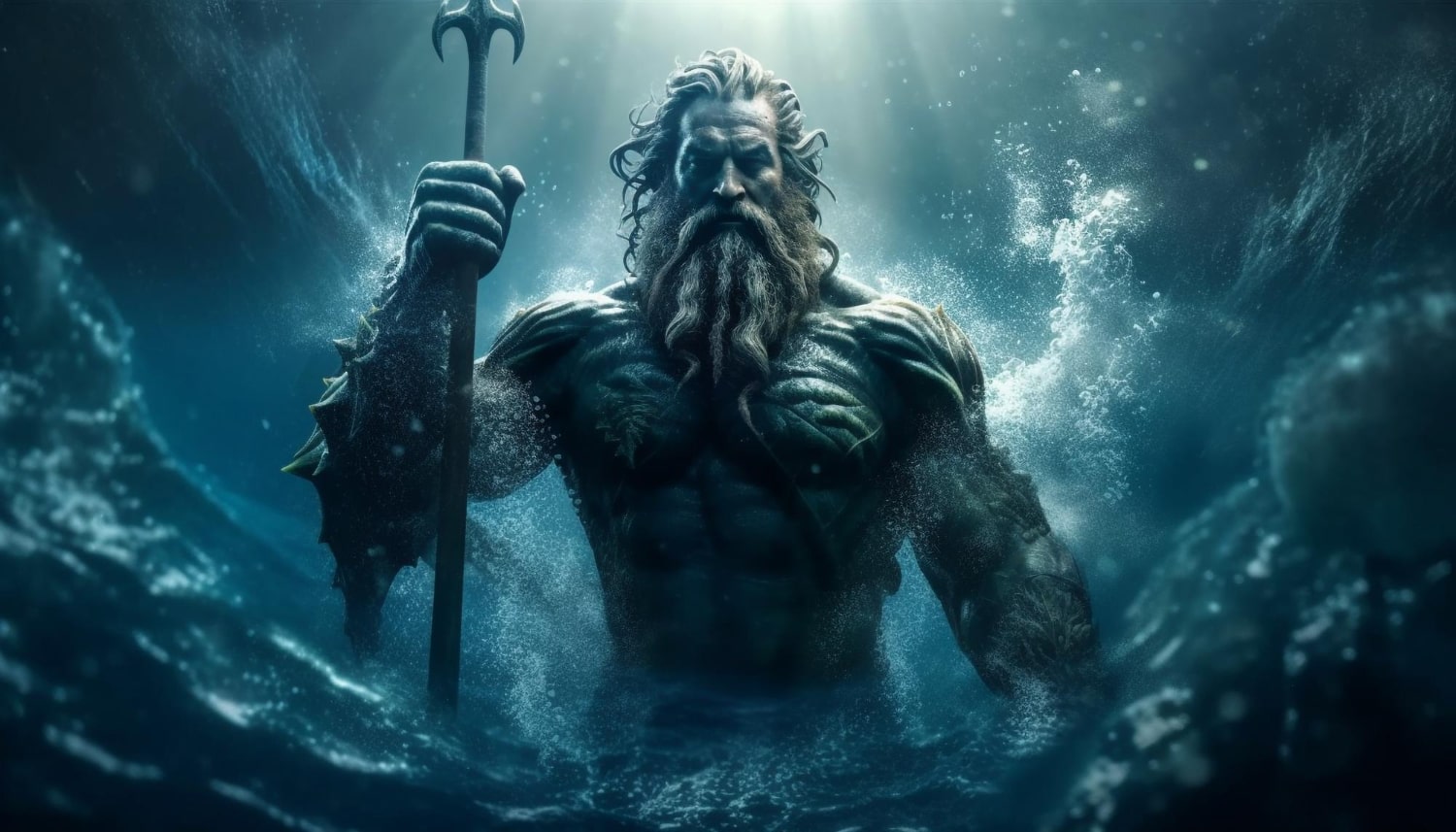
25 interesting facts about Poseidon
- 👁️ 327
Poseidon, one of the most revered deities of ancient Greece, holds a distinguished position in the annals of mythology. As the god of the sea, earthquakes, storms, and horses, he wielded immense power, and his temperament was as unpredictable as the waters he ruled. A son of Cronus and Rhea, Poseidon was worshipped as a protector of seafarers and coastal cities. The mythology surrounding him is rich, and his representation has had a significant impact on art, literature, and culture throughout history.
Fascinating facts about Poseidon:
- Poseidon is considered one of the twelve Olympian gods and was worshipped throughout ancient Greece.
- His Roman equivalent is Neptune.
- Poseidon was often depicted with a trident, which he used to control the waters and cause earthquakes.
- He was also known as the “Earth-shaker” due to his power over earthquakes.
- Poseidon was married to Amphitrite, a Nereid and the goddess of the sea.
- He was sometimes considered the father of the winged horse, Pegasus.
- Poseidon had many children, both divine and mortal, including the hero Theseus.
- His sacred animals were the horse and the dolphin.
- The ancient city of Corinth was particularly devoted to Poseidon’s worship.
- Poseidon was one of three brothers, the others being Zeus and Hades, who ruled the sky and the underworld, respectively.
- He had a strong rivalry with Athena, particularly during the contest for patronage of Athens.
- His powers extended beyond the sea; he was also the god of inland waters, including rivers and springs.
- Poseidon was known for his violent temper and vengeful nature.
- The Isthmian Games, held in his honour, included horse and chariot races.
- Many ancient seafarers would pray to Poseidon before embarking on voyages.
- Poseidon’s palace was believed to be located at the bottom of the sea, made entirely of coral and gems.
- He was considered second only to Zeus in terms of power and prestige among the Olympian gods.
- The myths often portray Poseidon as lustful, leading to numerous affairs and offspring.
- In Homer’s “Odyssey,” Poseidon is depicted as the antagonist to the hero Odysseus.
- His trident was created by the Cyclopes, the one-eyed giants.
- The island of Atlantis was said to be under Poseidon’s protection.
- He was sometimes associated with bulls, and some of his epithets reflect this connection.
- The ancient Greeks believed that sacrifices, including horses, were offered to Poseidon to calm his anger during storms.
- In art, Poseidon is often depicted riding a chariot pulled by hippocamps, mythical sea creatures that are half horse, half fish.
- Poseidon’s influence extended to legal matters in some cities, where he was considered a guardian of oaths and agreements.
Poseidon’s grandeur and complexity as a deity are a reflection of the natural forces he controlled. With domains extending over the sea, earthquakes, and even legal matters, he embodies the intricate and multifaceted nature of the ancient Greek worldview. The myths and traditions surrounding Poseidon continue to fascinate scholars and enthusiasts alike, leaving an indelible mark on Western culture and thought. His legacy, as turbulent and profound as the waters he ruled, remains an enduring symbol of power and majesty.
No related posts found.